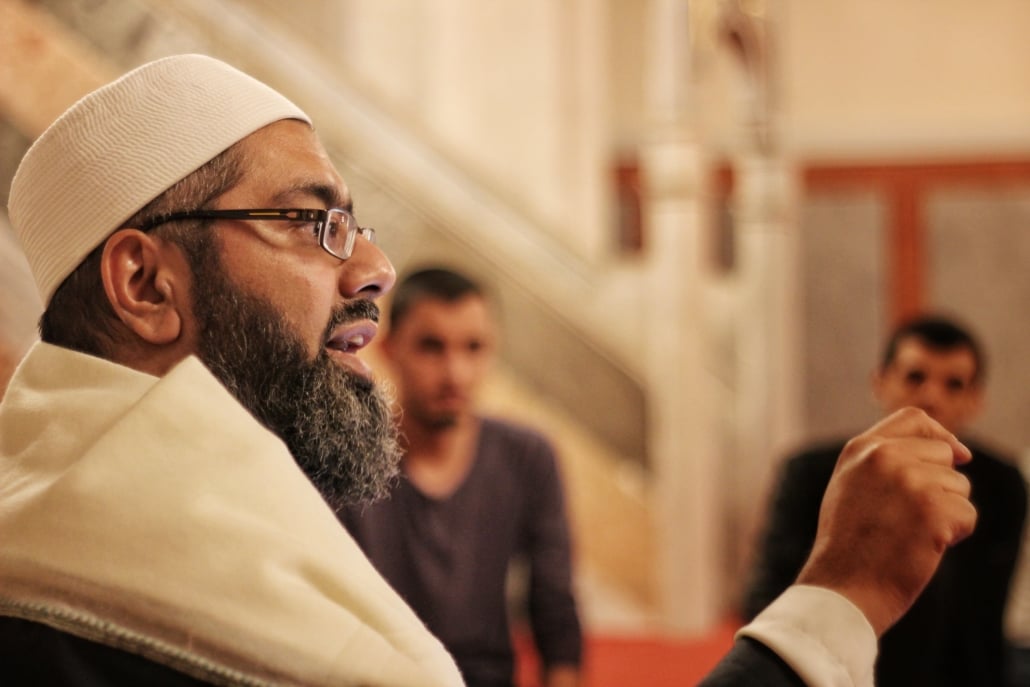Four Spiritual Sunnas and Why We Fall Short – the Wisdom of Abu’l Hasan al-Shadhili
Shaykh Faraz Rabbani discussed the Spiritual sunnas and how we can uphold them in this uplifting short lecture.
In the Name of Allah, the Merciful and Compassionate
Following in the Way of the Beloved Prophet
We strive to know, love, and follow the Prophet (peace and blessings be upon him) through his beautiful example (sunna).
His example (sunna) relates to (1) his words; (2) his outward actions; and (3) his states. [Suyuti/Nawawi, Tadrib al-Rawi Sharh Taqrib al-Nawawi]
In the same way, his example can be divided into outward sunnas (al-sunan al-dhahira) and inward sunnas (al-sunan al-batina).
Four Inward Spiritual Sunnas
Four of the key inward sunnas—or spiritual sunnas—are:
One. Being present with Allah (hudur), through keeping one’s tongue consistent in remembrance of Allah.
Two. Being pleasing to Allah in speech, by guarding one’s tongue from pointless or sinful talk.
Three. Being mindful of Allah (taqwa), by restraining one’s sinful desires.
Four. Actively reflecting (fikr) on one’s ultimate interests (masalih)—namely: reflecting on Allah and His Attributes; reflecting on oneself and one’s relationship with Allah; and reflecting on how to pursue the good of this life and the next in pursuit of the Pleasure of Allah.
What Prevents Us From Upholding These Four Spiritual Virtues?
These spiritual virtues can sometimes be a struggle to uphold. Why?
Imam Shadhili (Allah be pleased with him) explains, with clarity and insight:
“If remembrance becomes heavy on your tongue; if pointless talk becomes plentiful in your speech; if your limbs become given to pursuing unconsidered desires; and if the door of reflecting upon your best interests becomes closed—then know that this is due either to your grave contraventions or due to a hidden hypocritical intention in your heart.
You have no way but to one, repent (tawba); two, rectify (islah); three, hold fast to Allah (i‘tisam bi’l Llah); and four, strive for sincerity (ikhlas) in the religion of Allah Most High.
Have you not heard the words of Allah Most High:
“Except for those who have repented, rectified, held fast to Allah, and made their religion sincerely for Allah. These are indeed with the believers…” [Quran, 4:146]
And He does not state that they are “from the believers.” So reflect on this if you are a person of understanding.”
[Shadhili/Sharif, al-Sawanih al-Kamaliyya ‘ala’l Hikam al-Shadhiliyya, 10]
A full lecture on the topic can be viewed here:
Biography
Shaykh Faraz Rabbani spent ten years studying with some of the leading scholars of recent times, first in Damascus, and then in Amman, Jordan. His teachers include the foremost theologian of recent times in Damascus, the late Shaykh Adib al-Kallas (may Allah have mercy on him), as well as his student Shaykh Hassan al-Hindi, one of the leading Hanafi fuqaha of the present age. He returned to Canada in 2007, where he founded SeekersGuidance in order to meet the urgent need to spread Islamic knowledge–both online and on the ground–in a reliable, relevant, inspiring, and accessible manner. He is the author of: Absolute Essentials of Islam: Faith, Prayer, and the Path of Salvation According to the Hanafi School (White Thread Press, 2004.) Since 2011, Shaykh Faraz has been named one of the 500 most influential Muslims by the Royal Islamic Strategic Studies Center.
